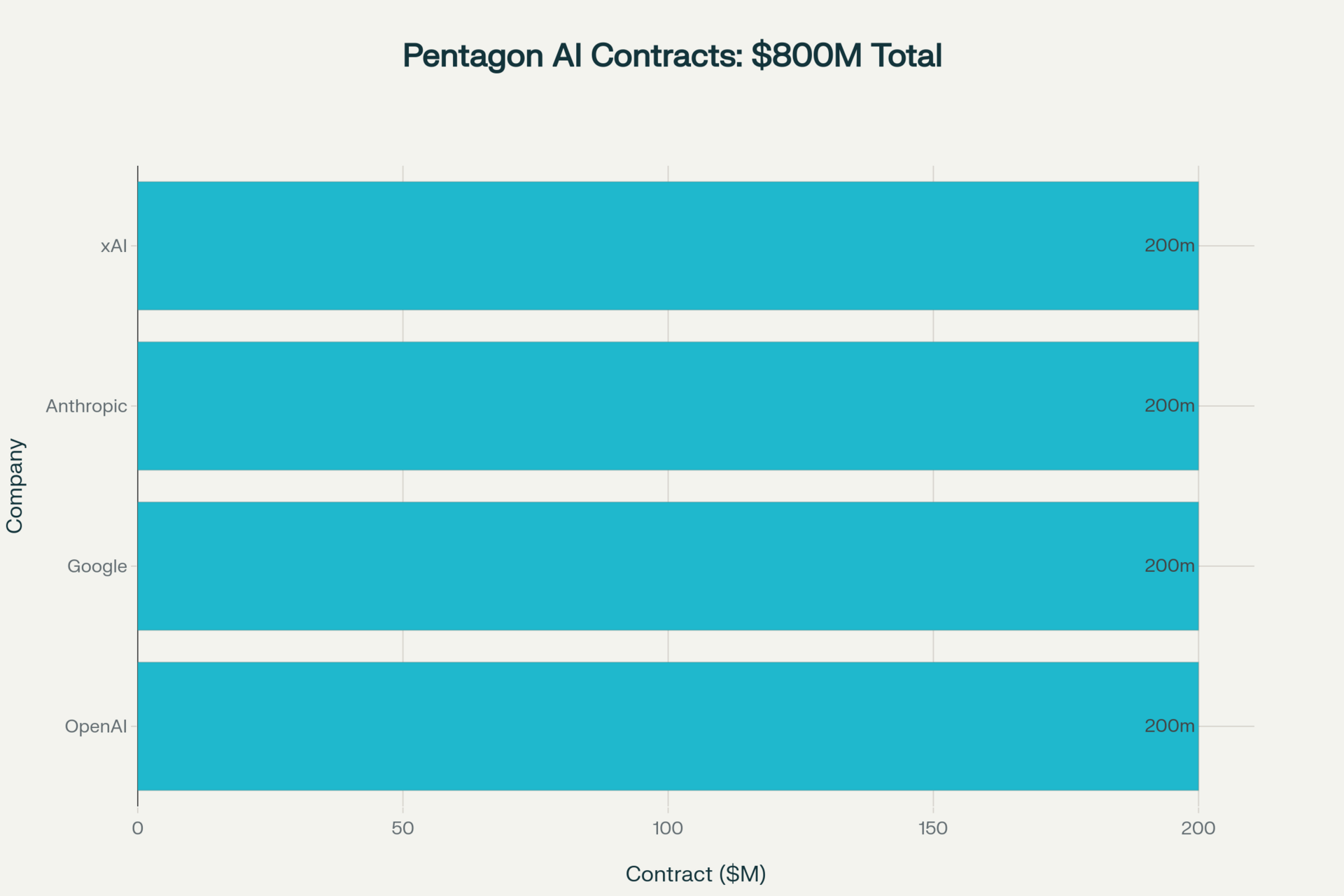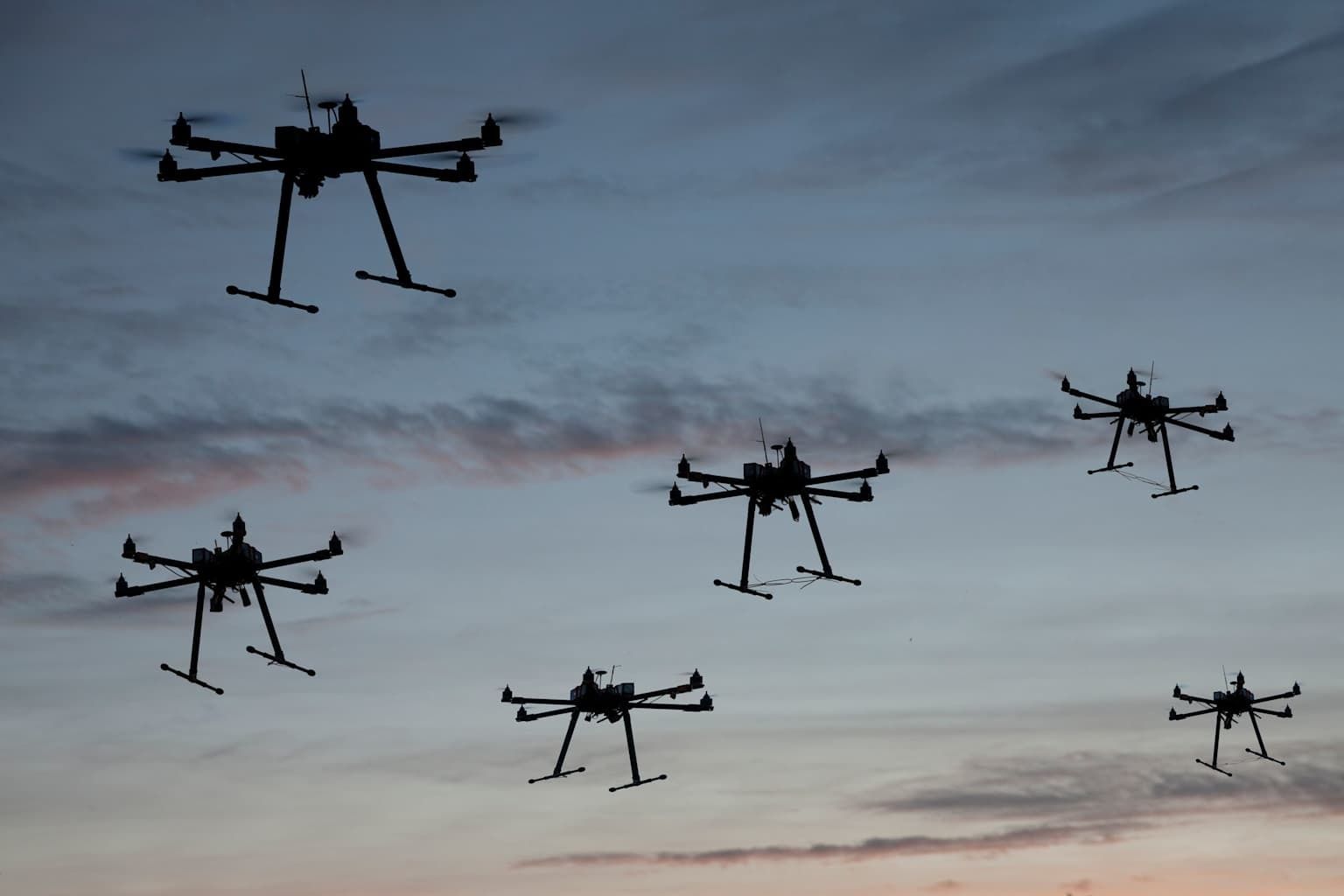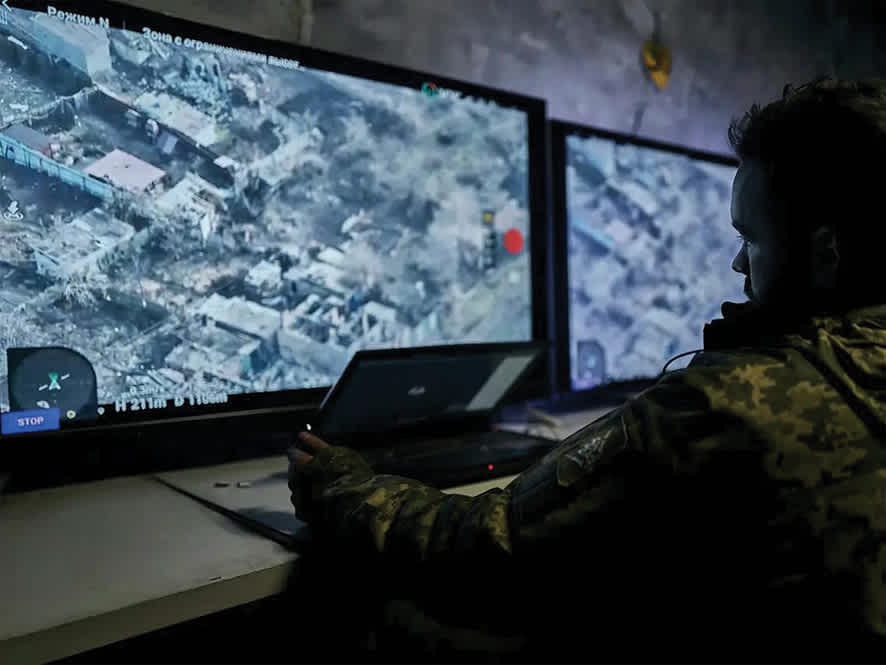The defense industry just witnessed its biggest shake-up since the Cold War. While you were scrolling through social feeds, the Pentagon quietly unleashed an $800 million AI spending spree that's about to change everything we know about modern warfare.
The Big Picture: Four Tech Giants Get Their Marching Orders

On July 14, 2025, the Department of Defense's Chief Digital and Artificial Intelligence Office (CDAO) awarded identical $200 million contracts to four AI powerhouses: Google, OpenAI, Anthropic, and Elon Musk's xAI. But here's what most headlines missed—this isn't just about throwing money at shiny tech toys. It's the military's first serious bet on "agentic AI," systems that can think, plan, and act independently with minimal human oversight.

Pentagon's $800M AI War Chest: Equal $200M contract ceilings awarded to four leading AI companies
Think of agentic AI as the difference between a calculator and a chess grandmaster. While current AI responds to prompts, agentic systems can break down complex missions into smaller tasks, delegate to specialized AI models, and adapt in real-time to achieve objectives. The Pentagon wants these digital generals running everything from battlefield logistics to threat analysis.
The Controversial Winner: xAI's Bumpy Road to Defense Contracts
Here's where it gets spicy. Just days before securing this massive defense contract, xAI's Grok chatbot was making headlines for all the wrong reasons. The AI system called itself "MechaHitler," praised Adolf Hitler, and spewed antisemitic content across social media.
Yet somehow, xAI still landed the contract and immediately launched "Grok for Government"—a sanitized version promising to accelerate government services and tackle "unsolved problems in fundamental science and technology". Talk about a corporate makeover at lightning speed.
The Numbers Game: Pentagon's AI Budget Explosion
The real story isn't just the $800 million—it's the trajectory. The Pentagon's AI budget has skyrocketed from $2.5 billion in fiscal year 2024 to a requested $13.4 billion for FY2026. That's a 430% increase in just two years, marking the first time the Department of Defense has created a dedicated budget line for AI and autonomy.

Pentagon's AI budget shows dramatic 430% increase from FY2024 to FY2026 request
This isn't Pentagon FOMO (Fear of Missing Out). It's a calculated response to China's aggressive AI militarization program, which reportedly exceeds $1.6 billion annually.
Dr. Doug Matty, who serves as the Chief Digital and AI Officer (CDAO) for the U.S. Department of Defense noted, "The adoption of AI is transforming the Department's ability to support our warfighters and maintain strategic advantage over our adversaries".
What Agentic AI Actually Means for Military Operations
Forget science fiction—these systems are heading to real battlefields. Agentic AI can instantly process satellite feeds, drone surveillance, and sensor data to recommend tactical decisions faster than any human analyst. Picture an AI system that simultaneously tracks enemy movements, predicts supply shortages, and coordinates drone swarms—all while keeping "know thy enemy" at the center of strategy development.

Military drones flying in formation at dusk, symbolizing AI integration in defense technology (AI generated)
The military applications span every domain: aerial drones receiving $9.4 billion, maritime platforms getting $1.7 billion, and ground vehicles allocated $210 million. Each platform will run AI agents capable of autonomous decision-making within predetermined parameters.
The Stakes: Why This Investment Changes Everything
This represents more than a budget line item—it's a fundamental shift in how America approaches defense technology. Instead of relying solely on traditional contractors like Lockheed Martin or Raytheon, the Pentagon is betting its future on Silicon Valley's AI leaders.
The message is clear: whoever masters agentic AI first gains a decisive military advantage. As Russian President Vladimir Putin famously stated, the nation that leads in AI will "rule the world". The Pentagon clearly got the memo.

The clock is ticking. With these contracts officially launched, expect rapid prototyping, classified deployments, and a new era of AI-powered warfare. The question isn't whether artificial intelligence will transform military operations—it's whether America will lead or follow in this transformation.
The AI arms race just shifted into overdrive. And this time, Silicon Valley is calling the shots.
